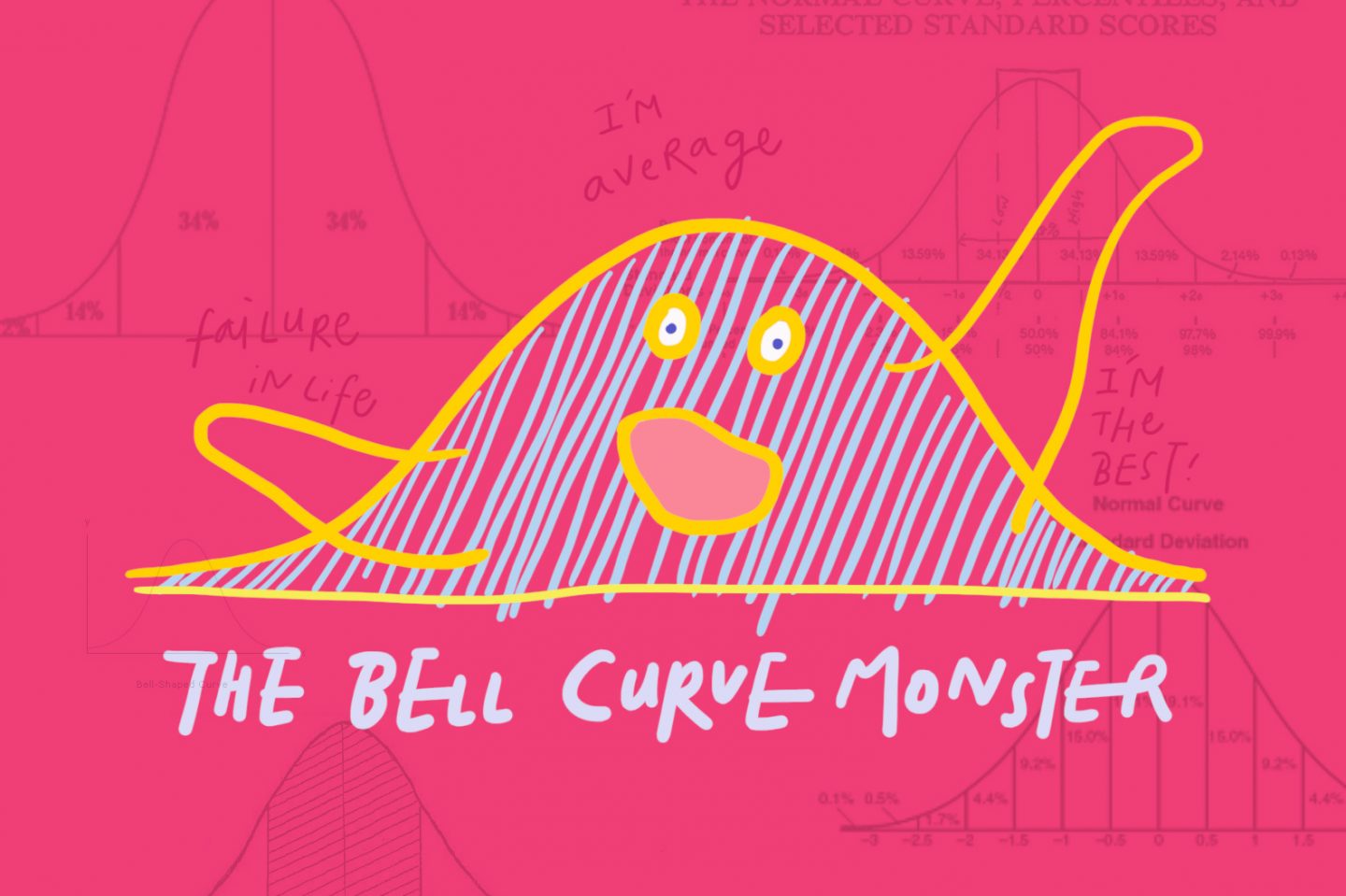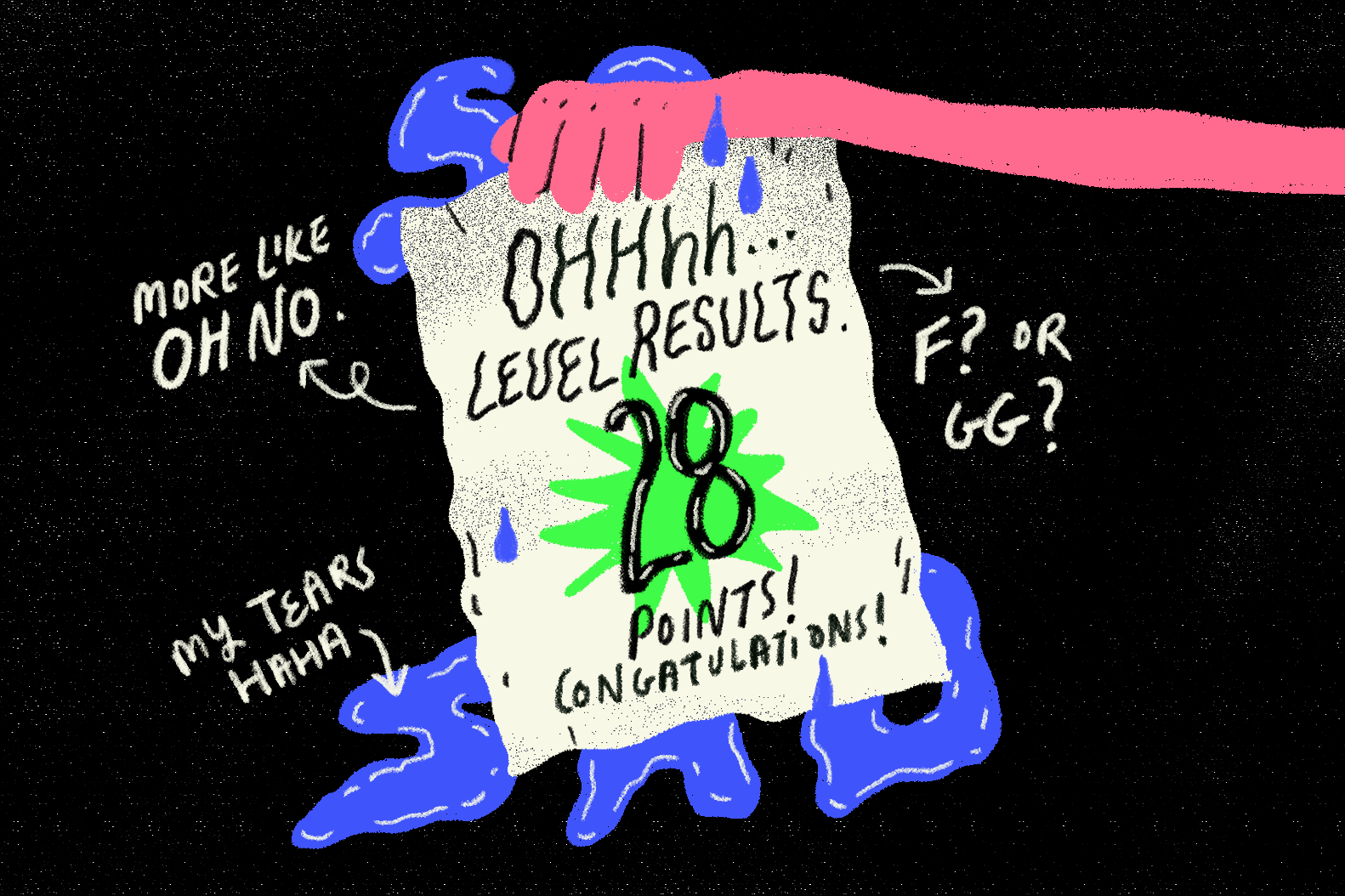The Bell Curve can be a good thing. Its God-like features include graciously dispensing grades to undeserving students, just on the basis on their being a bit less worse than others. But the monster that is the Bell Curve can also devour the average and instigate battles amongst the finest.
My school is very fond of using the bell curve to “help” students. In my first year, I was stressed out by my poor grades. I barely passed midterms and didn’t fare much better for my finals either. Based on my absolute score, I would have failed that module. But I was saved by the bell (curve). I got bumped up and got a pretty decent grade. All due to the grace of the Bell Curve God.
On the flip side, it can make competition tough. Contending for the top grades often left me with bruised relationships and selfish tendencies. I kept looking at what I could do to surpass my peers. Help was rarely given, notes were nearly never shared and insights were not contributed unless it boosted one’s own grades.
There was no mercy. Whatever happened to the paramount pursuit of knowledge?
Such a system centres on relativism. How good I am as a student is determined by how good my peers are. If I am better than them, I am categorised as an elite. The good side of the curve. I may get an award, but if it’s nothing compared to the awards others gain, then I’ve slipped to the bad side of the curve.
There is no absolute standard for comparison.
We bell curve our studies. We bell curve our achievements.
Do I bell curve myself? If I were a cup, how much would I cost?
Contending for the top grades often left me with bruised relationships and selfish tendencies. I kept looking at what I could do to surpass my peers. Help was rarely given, notes were nearly never shared and insights were not contributed unless it boosted one’s own grades.
It is easy to determine one’s self-worth based on the bell curve. I am better because I have more talents and can do more things than my friends. I am better because I do more good deeds than those around me.
Shouldn’t there be a less transitory way – less of an ever-shifting needle – to determine my self-worth?
My worth is not based on how much I can bring to the table. Regardless of the number of As on my transcript, my value as a person does not fall. Even if I do not enter the best university in town, that does not mean I am any less worthy as a person.
In my education journey in Singapore, I have had some poor grades and some good ones as well. I always slipped into thinking, “How well did my friends do? Did I fare better than them?” The improvement in my grades since the last exam was not nearly as important as how many more points I had compared to my friends.
This mindset made it difficult for me to celebrate my friends’ successes, or empathise with them when they did not do as well. And because I based my worth on how much better I was, there was unhealthy competition in the friendship.
This was the product of basing my worth on the bell curve.
It’s a struggle to keep from falling in the trap of trying to determine, measure, gauge how good I am, relative to the things and people around me. I decided to break out of this cycle. And … things changed.
I found there was more freedom in the way I interacted with the people around me. Notes were shared. Study groups were more pleasant. Friends and classmates looked out for one another. If I was busy with a production and could not study in time for a test, my friends readily let me study their notes. If one of us had past exam papers to revise with or, ahem, insider information, it was never kept a secret.
This is the freedom I’ve experienced since fleeing the clutches of the Bell Curve Monster.
So the next time you get upset when you get a bad grade, or feel smug when you’re in the upper echelons of your class rankings, step aside for a bit. Breathe. Look beyond the emotions rearing their head. And think about why you may be responding that way.
Million Dollar Question: Do you bell curve yourself?









